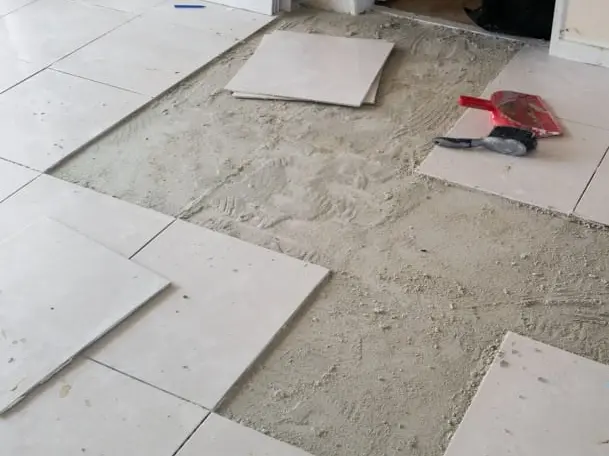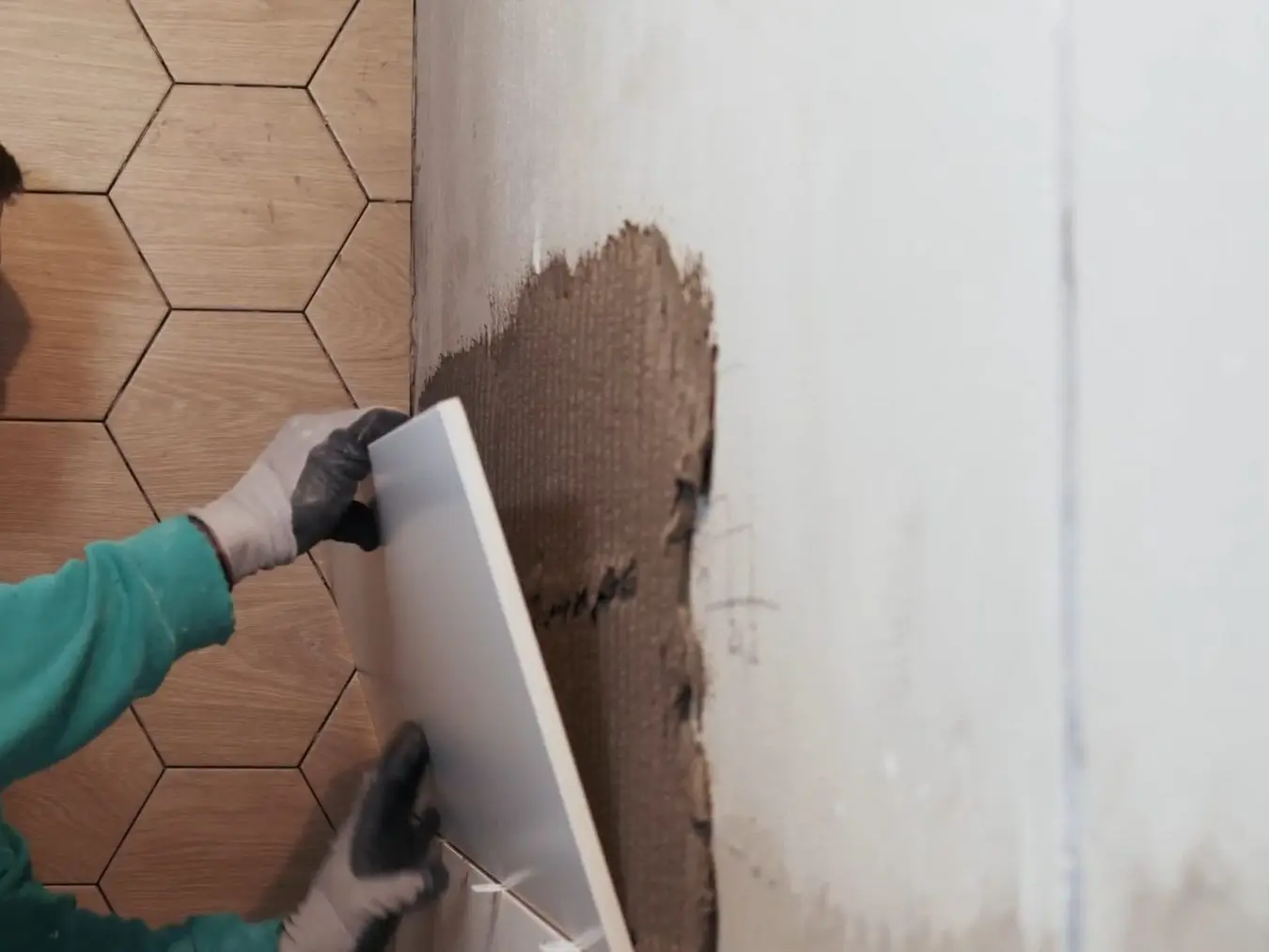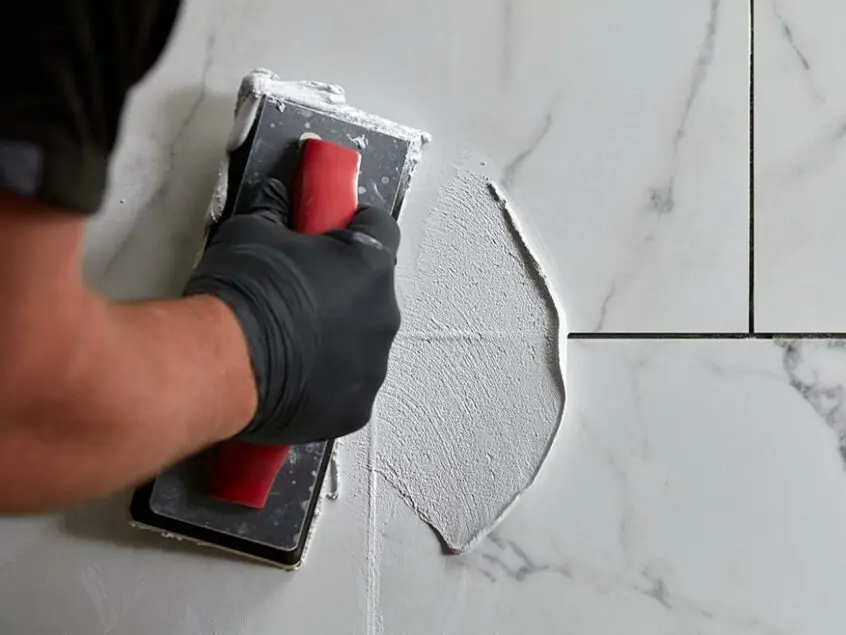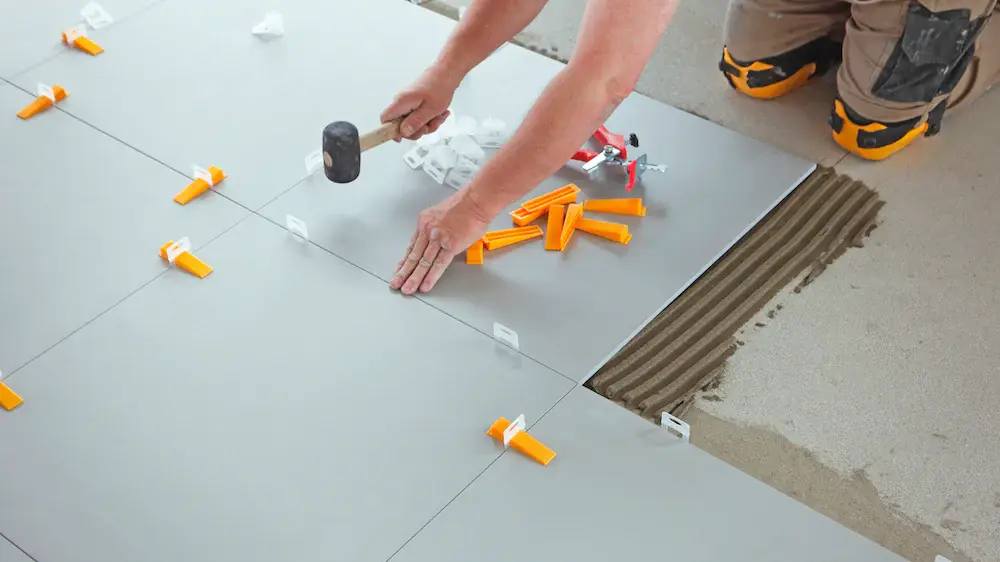Porcelain tiles have become a top choice for both residential and commercial spaces across the UK due to their durability, sleek aesthetics, and low maintenance requirements. But while porcelain offers many advantages, its installation requires a deeper understanding—especially when it comes to selecting the right adhesives and grouts.
Using standard products might seem convenient, but porcelain is not a “one-size-fits-all” material. In this blog, we’ll explain why porcelain tiles need specialised adhesives and grouts, supported by expert opinions and industry data.
What Makes Porcelain Different?
Porcelain tiles are made from refined clay and fired at extremely high temperatures, making them:
- Denser and harder than ceramic tiles
- Less porous, often absorbing less than 0.5% of water (almost waterproof)
- Heavier, requiring stronger bonding materials
This composition gives porcelain its excellent performance, but it also presents challenges during installation.

Why Regular Adhesives Fall Short
1. Low Porosity Requires High Bond Strength
The density and low porosity of porcelain mean traditional cement-based adhesives can struggle to bond effectively. Standard tile adhesives rely on water absorption from the tile to cure properly. Since porcelain doesn’t absorb water well, it prevents standard adhesives from setting correctly.

Proof: A study from the Tile Association (TTA UK) shows that porcelain tile installations using generic adhesives were 40% more likely to experience bond failure within the first year.
Solution: Use polymer-modified adhesives that are formulated to bond to non-porous surfaces like porcelain.
2. Weight and Size of Porcelain Tiles
Porcelain tiles, especially large format ones, are heavy. This increases the need for strong initial grab and long-lasting adhesion for large format porcelain an adhesive like Mapei Ultralite is beneficial because after buttering the back of the large format tile it minimizes the extra weight for handling purposes, and offers exceptional adhesion.
Industry Insight: British Standards (BS EN 12004) classifies adhesives into C1 and C2 grades. C2 adhesives are improved performance adhesives—especially with large format of porcelain tile as there is no porosity an S2 is the preferred choice for porcelain. They provide the mechanical strength needed to hold heavier tiles without sagging.

Why Specialised Grouts Are Equally Important
1. Narrow Joints Need Fine, Flexible Grout
Porcelain tiles often have rectified edges, which allow for narrow grout joints (as small as 1–2mm). In these cases, unsanded grouts or fine joint grouts are essential to ensure a clean, smooth finish.
Recommended Grout: A fine grade, flexible grout that can withstand small movements and temperature changes.
2. Waterproofing in Wet Areas
Bathrooms, kitchens, and exterior spaces demand a grout that doesn’t just fill gaps—it must resist water infiltration and mildew.
Proof: Mapei and Kerakoll, leading UK manufacturers, both recommend epoxy grouts for porcelain tiles in wet zones. These grouts offer higher water resistance, chemical protection, and stain resistance compared to traditional cement-based grouts.
3. Thermal Movement and Flexibility
In environments like underfloor heating systems, porcelain expands and contracts with temperature changes. Rigid grout can crack under such movement.
Solution: Use flexible, polymer-enhanced grout that accommodates subtle shifts without failing.

Final Recommendations
If you’re working with porcelain tiles—whether in a home bathroom or a commercial setting—it’s essential to choose products designed specifically for the job:
- Adhesive: Look for C2-rated, polymer-modified adhesive compatible with porcelain and an S2-rated for underfloor heating or exterior applications.
- Grout: Choose a flexible, waterproof grout, and consider epoxy-based options for high-moisture or high-traffic areas.
Trusted Brands in the UK
Here are some of the top-performing adhesives and grouts for porcelain tiles used by professionals across the UK:
Brand
- Kerakoll
- Mapei
- BAL
- Ardex
- Ultra
Conclusion
Porcelain tiles offer outstanding performance, but only when paired with the right materials. Specialized adhesives and grouts ensure long-term durability, aesthetically pleasing finishes, and protection from water and stress.
By investing in the proper products, you're not just protecting your tiles—you're protecting your reputation as an installer or your investment as a homeowner.


Why Porcelain Requires Specialized Adhesives and Grouts?